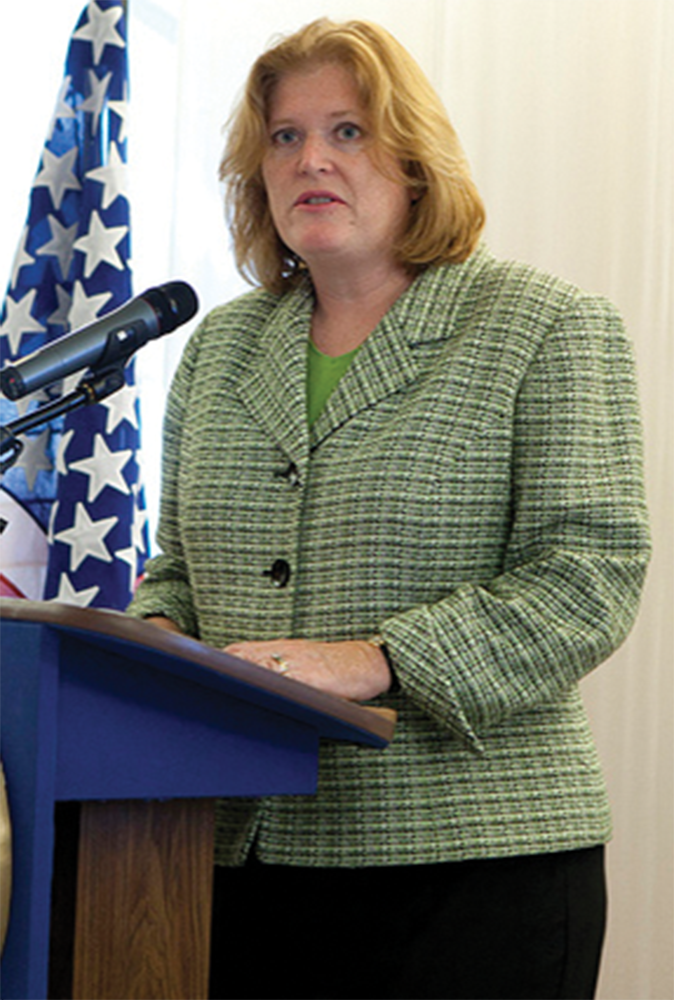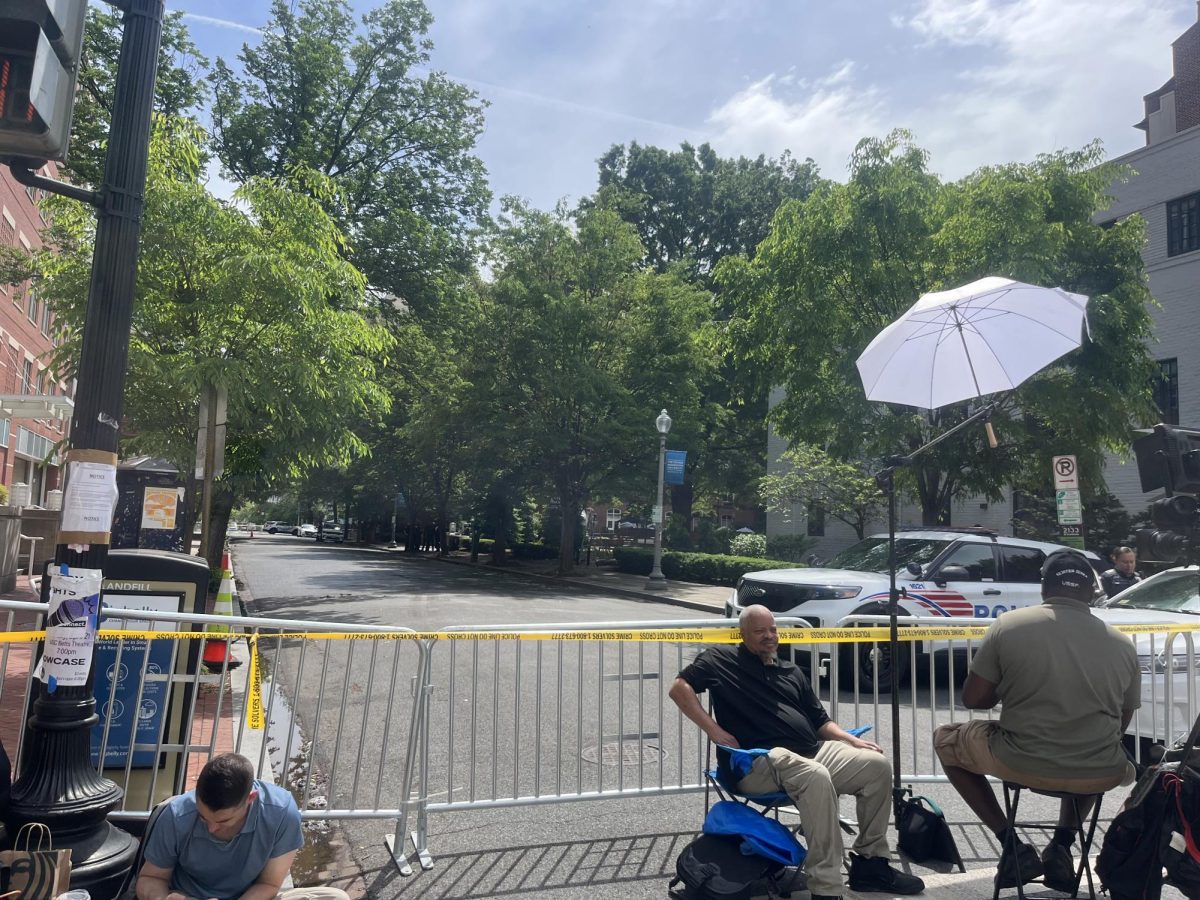
Assistant Secretary of State for Population, Refugees and Migration Anne C. Richard said the global refugee crisis led to an alarming lack of education for refugee children.
A lack of access to education for refugee children is one of the most significant consequences of the global refugee crisis, according to Assistant Secretary of State for Population, Refugees and Migration Anne C. Richard in a discussion hosted by refugee advocacy group No Lost Generation on Thursday.
“The number of child refugees has more than doubled in the past 10 years,” Richard said. “The most insidious problem, we believe, it that refugee children are robbed of an education. I remember meeting young people in refugee camps and I thought, what a waste for them to be here, along the Turkish-Syrian border instead of school.”
The event, moderated by Georgetown University research professor Elizabeth Ferris in Copley Formal Lounge, explored the Obama Administration’s goals, challenges and successes in dealing with the global refugee crisis.
According to the United Nations High Commissioner for Human Rights, 4.8 million refugees have fled to countries in the Middle East, including Turkey, Lebanon, Jordan, Egypt and Iraq since the Syrian civil war began in March 2011. One million have requested asylum in Europe.
The United States runs the largest refugee resettlement program, resettling over 3.3 million refugees since 1975. Obama expanded this program in his administration, pledging to accept over 100,000 refugees by October 2017.
The U.S. State Department funds a number of programs to assist refugee children and adolescents in receiving an education. Both Turkey and Lebanon have pledged to create more opportunities for Syrian children to go to school, an effort that was encouraged and supported by the United States.
However, President-elect Donald Trump’s statements have created doubt for Richard about the future of the program.
“Much to my surprise and dismay, refugees coming into the United States became a political football. We don’t know what the new administration will do,” Richard said.
One of Trump’s campaign proposals was for “extreme vetting” of refugees and Muslims coming into the United States. Trump also called for temporarily banning all Muslims from entering the United States in Dec. 2015, before beginning to walk back the policy in June.
According to Richard, refugees already undergo very comprehensive evaluation and vetting.
“We actually do a very thorough job screening refugees, so my hope is that when the new Secretary of State comes in and sees all the steps involved, they will come to believe that we do a very good job in our vetting,” Richard said.
Richard said students should look to get involved with refugee advocacy by pursuing internships with NGOs and the State department, working as online tutors for refugees and organizing fundraising events. Students have the ability to make a positive impact in the crisis, according to Richard.
“The scale of this crisis means we need more. We need students to get mobilized and informed to make a difference,” Richard said. “We need your wisdom, your creativity, your enthusiasm, your technological wizardry, your power to innovate and your prowess with social media.”
Richard said students should also look for local opportunities to help refugees, rather than opportunities to help refugees abroad.
“I find that college students always want to jet off to some far-flung location and have some life altering experience, but I always suggest they start by going down the street and finding some local refugee student going to a nearby high school,” Richard said. “You don’t have to get a plane ticket to help.”
No Lost Generation is a movement of student activists founded to support refugees by promoting awareness, fundraising and creating education resources for refugees, according to the group’s page.
The No Lost Generation initiative was launched in 2013, with Georgetown’s chapter launching at the beginning of this academic year. Since the 2013 launch, 49 chapters have been established at universities across the nation.
According to the Georgetown chapter’s founder and Executive Director Elana King-Nakaoka (COL’19), the organization works in conjunction with the State Department to raise awareness about the plight of refugees.
“I’m passionate about building the organization here on campus because I feel that while many Georgetown community members care about the refugee crises, the gravity of the situation can feel overwhelming,” King-Nakaoka said.
King-Nakoaka said the event aligns with the goals for No Lost Generation on campus.
“We wanted to host a moving and informative lecture on campus that both raised awareness about the global refugee crisis, and focused on just how students can get involved and make their voices heard,” King-Nakaoka said.
Sindrel Al-Hamsi, a Syrian exchange student from Damascus who is in the United States through a fellowship program with the U.S. State Department, said she was moved by the outpouring of support and advocacy demonstrated throughout the discussion.
“You see images of us dirty and looking like we smell, but it didn’t used to be this way. We are sophisticated and educated people, and we just look this way because we have had to walk for miles and miles to reach safety,” Al-Hamsi said. “Really, I just wanted to come here to say thank you.”




















